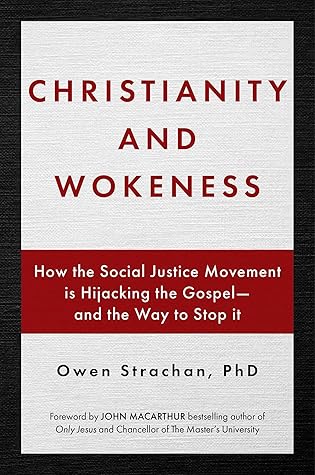More on this book
Kindle Notes & Highlights
Read between
July 26 - August 2, 2021
CRT is basically neo-Marxism on postmodernist steroids—a deeply uncongenial point of view cynically weaponized for the deconstruction and dismantling of social structures. Wherever it is introduced, CRT deliberately provokes and feeds on disunity. It intensifies ethnic hostility, promotes crass identity politics, foments resentment, and imputes guilt or victimhood to people according to their skin color.
Many have insisted that these are indispensable tools that “can aid in evaluating a variety of human experiences” in a way that, presumably, Scripture cannot.
Meanwhile, Gospel doctrines like original sin, atonement, justification, and the glory of Christ are being eclipsed by lectures about social inequities and ethnic injustices that can never fully be atoned for—but for which reparations should nevertheless be paid.
As an “analytical tool,” CRT has no more use than a wrecking ball. It can demolish core social structures and leave society itself in ruins, but it cannot clean up the mess, much less build anything worthwhile.
But enough table-setting. To the ramparts; to the law and testimonies.
According to standard woke ideology, in general terms “white” people are racist, the historic oppressors of others, and thus as a collective unit, “white” people are guilty.
The notion of "guilt" here is supplied by the author and is not integral to the understanding. Further, the author does not define guilt here.
Like liberal Protestantism, which denied the historic truthfulness of the faith, supernatural miracles, and a sin-cleansing atonement for individual sinners, wokeness is not merely a different form of Christianity, a remixed version that fits fluidly with conservative evangelical faith.
It’s not hard, though, to see why folks would make this mistake. Here are some reasons why: Critical Race Theory is complicated and has its own language and discourse, and most people do not read many books on complex intellectual movements.
But here we must ask: What is justice? What is unity? More broadly, what does it mean to be human? To answer these good questions, we cannot ask the people around us. We cannot learn such higher truth in an afternoon seminar. We have to go to God. We need the teaching of Scripture.
CRT teaches that all of societal life is structured along racial power dynamics.
They do so intentionally, both individually and systemically, through campaigns of violence by police, disproportionate incarceration of minorities, unfair housing decisions, unequal distribution of public resources for schooling and other causes, limited access to health and nutrition, and much more.
But woke scholars and activists argue that the America of today is much like the America that formalized slavery, Jim Crow, and segregation.
In truth, humanity is divided into two groups: saved and unsaved. But Marx reframed our fundamental categories along economic lines—“class struggles,” to be precise. He saw history playing out as a great conflict between oppressors (those who control the means of production) and the oppressed (those who are not economically privileged).
Both of these can be trues. A flase dichotomy is presented, and once again, this is not a fair treatment.
In fact, no less a figure than John MacArthur—a leading evangelical statesman of our time—has called it the greatest danger to the Church that he has seen in six decades of Gospel ministry.
But we grew up in a society that had made real societal progress along “racial” and ethnic lines.
It would convince many people who did not harbor “racial” prejudice that they did; it would teach many people who had made real cross-cultural connections that they could not transcend differences of skin color. Most devastatingly, it would introduce in many churches the idea that Christianity incubates “white privilege” and, still more strongly, “white supremacy.”
Christians are being called to “repent” for their “whiteness” and reject their inherent “white fragility”
Rah argues that systemic racism is pervasive in the United States, a reality which has become more and more evident through the high-profile shootings of unarmed black men by white police officers.13 In such cases, non-black Christian outsiders should lament with their black brothers and sisters, joining in their cries to God voiced out of pain and outrage.14 The author argues that, when faced with the reality of injustice against blacks: Our claims must first shift from the defensive posture of “I am not a racist” to “I am responsible and culpable in the corporate sin of racism.” We must move
...more
First, he largely fails to tell the story of how a diverse coalition of voices, including many “white” people, campaigned against slavery and Jim Crow.
So the critique is that Tisby didn't adequately praise white people? That certainly seems like some white fragility. Tisby's point was that the church complicit in these acts.
Denying substitutionary atonement—and even decrying it as a form of weakness alien to a truly liberated people—he made the move that the liberal Protestants had already executed, albeit from within his own social location.
Does Cone deny substitutionary atonement? Or, more rightly, is that a requirement for Black Liberation Theology?


